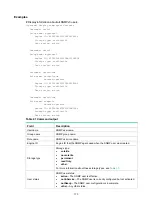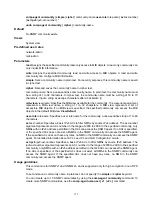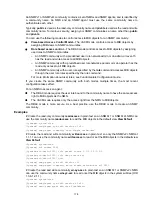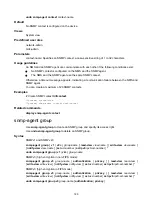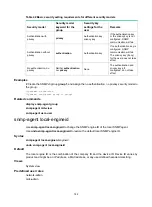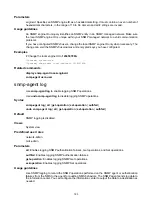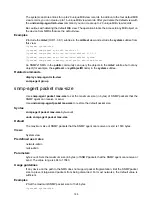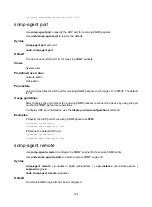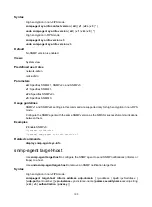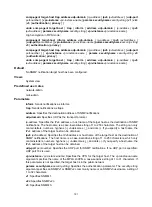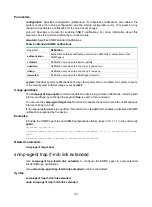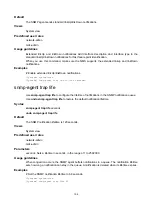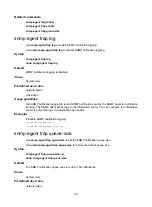
183
Parameters
engineid
: Specifies an SNMP engine ID as a hexadecimal string. It must contain an even number of
hexadecimal characters, in the range of 10 to 64. All-zero and all-F strings are invalid.
Usage guidelines
An SNMP engine ID uniquely identifies an SNMP entity in an SNMP managed network. Make sure
the local SNMP engine ID is unique within your SNMP managed network to avoid communication
problems.
If you have configured SNMPv3 users, change the local SNMP engine ID only when necessary. The
change can void the SNMPv3 usernames and encrypted keys you have configured.
Examples
# Change the local engine ID to
123456789A
.
<Sysname> system-view
[Sysname] snmp-agent local-engineid 123456789A
Related commands
display
snmp-agent
local-engineid
snmp-agent
usm-user
snmp-agent log
Use
snmp-agent log
to enable logging SNMP operations.
Use
undo snmp-agent log
to disable logging SNMP operations.
Syntax
snmp-agent log
{
all
|
get-operation
|
set-operation
|
authfail
}
undo snmp-agent log
{
all
|
get-operation
|
set-operation
|
authfail
}
Default
SNMP logging is disabled.
Views
System view
Predefined user roles
network-admin
mdc-admin
Parameters
all
: Enables logging SNMP authentication failures, Get operations, and Set operations.
authfail
: Enables logging SNMP authentication failures.
get-operation
: Enables logging SNMP Get operations.
set-operation
: Enables logging SNMP Set operations.
Usage guidelines
Use SNMP logging to record the SNMP operations performed on the SNMP agent or authentication
failures from the NMS to the agent for auditing NMS behaviors. The SNMP agent sends log data to
the information center. You can configure the information center to output the data to a destination as
needed.





